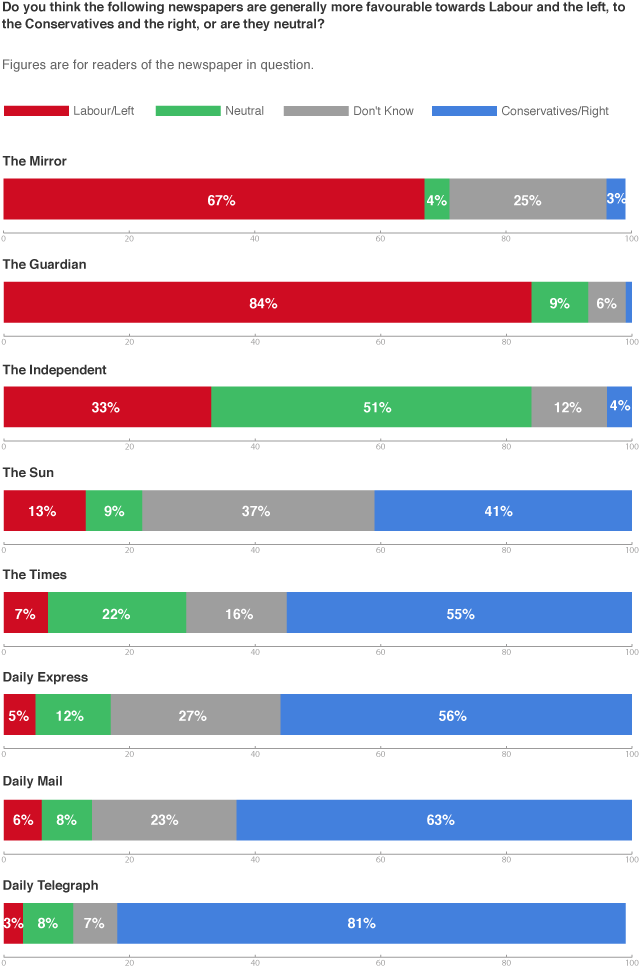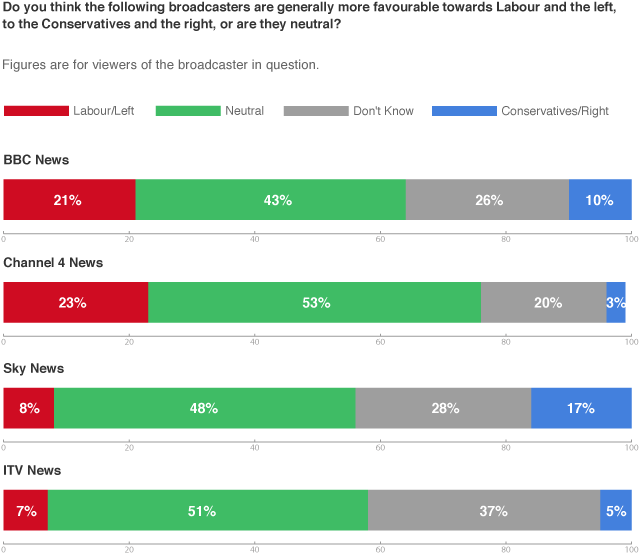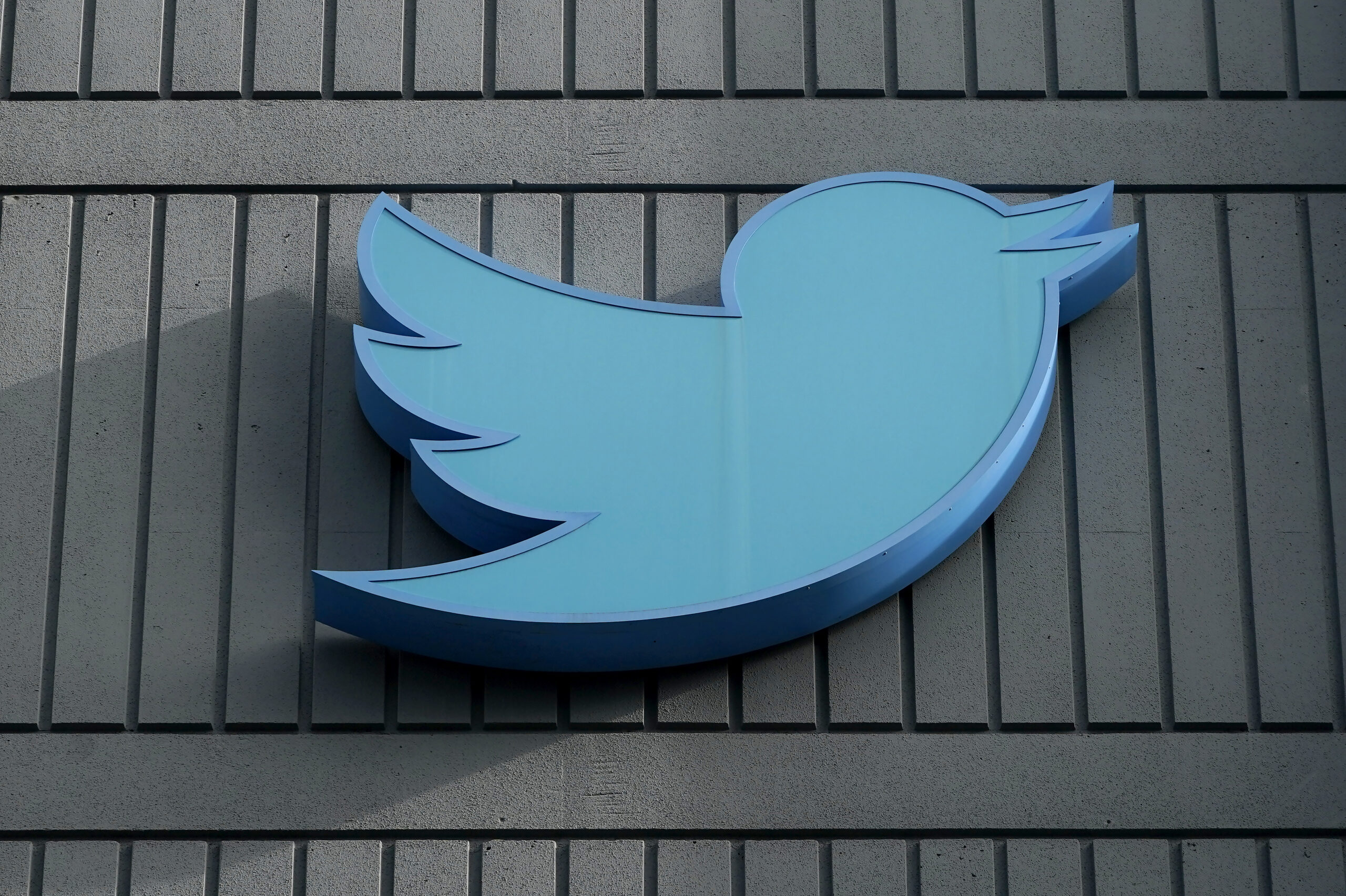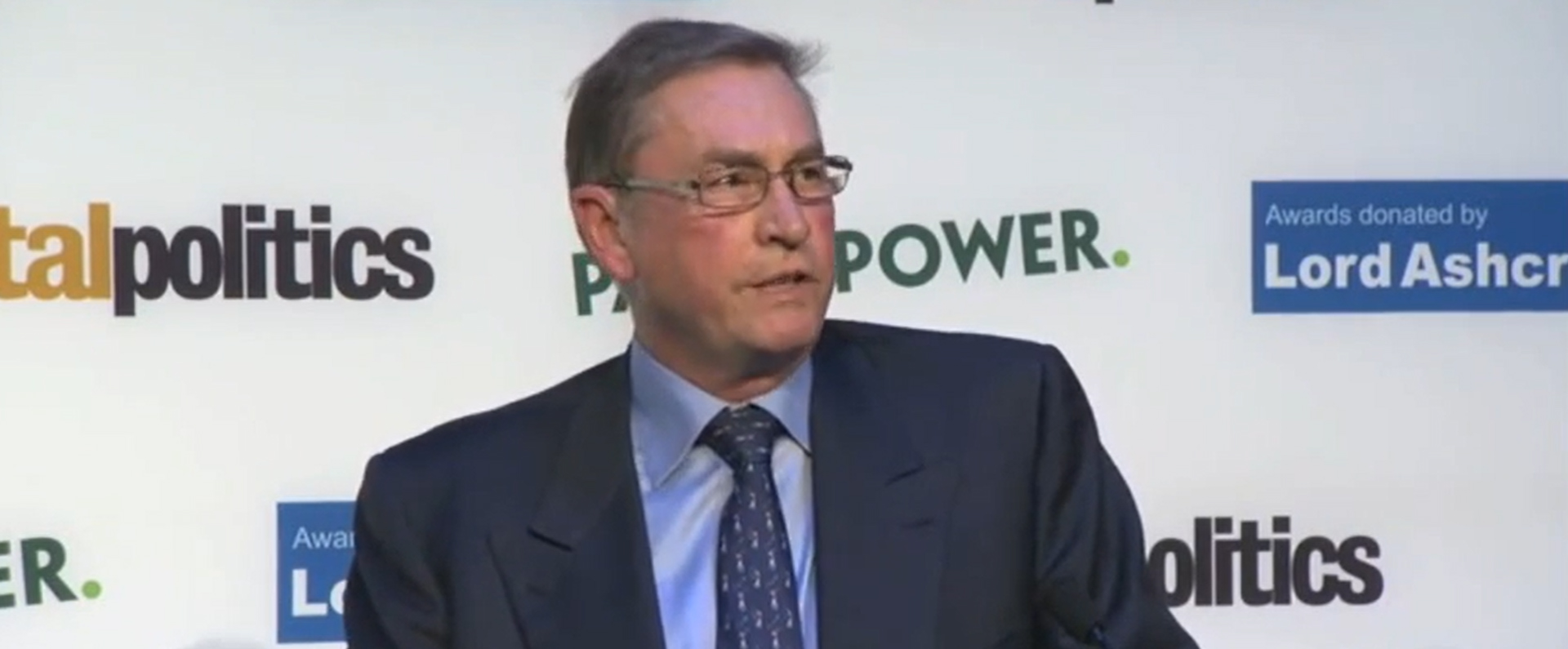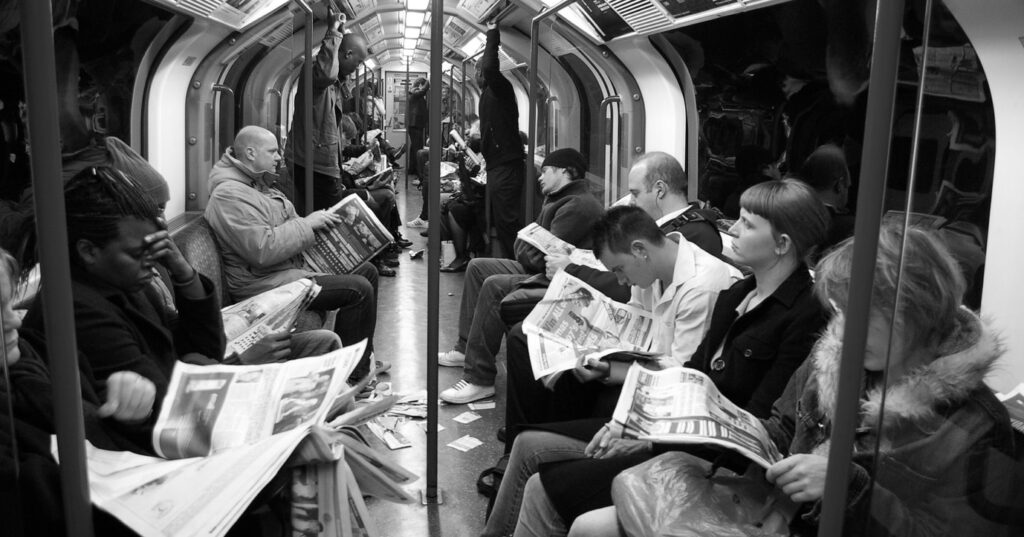
The Leveson Inquiry, which is now heading towards its second year, has spent the last few weeks considering “the relationship between press and politicians”. It is taken as read that this matters a great deal. An assumption exists that a newspaper may deploy huge influence over the votes of its readers in the service of the party that most pleases its proprietor.
Attention has naturally focused on Britain’s biggest selling daily newspaper, The Sun. But how real is The Sun’s political influence over the public? Leveson has examined minutely the relationships, in the run-up to the last election, between D. Cameron, R. Murdoch, G. Osborne, J. Murdoch, A. Coulson, R. Brooks and her horse – but have most Sun readers even noticed their paper’s support for the Tories?
No. Most of them have not.
According to a poll I conducted in mid-June, only 41% of Sun readers thought their paper was generally more favourable towards the Conservatives or the right. Less than a third (32%) of Sun-reading women thought so; 15% of them thought it supported Labour, and more than half either thought it was neutral or didn’t know which way it leaned. Only half of Sun readers who voted Conservative in 2010 believed the paper supported the Tories. Readers of News International’s other daily, The Times, were more likely than Sun readers to regard their own paper as supporting the Conservatives and the right: 55% of Times readers thought it generally favoured the Tories.
Those of us in the political world take it for granted that everyone knows where each paper’s sympathies lie. This is not the case. Only just over a third (35%) of the 6,863 people surveyed thought, for example, that the Guardian leaned to the left, and 12% thought it was generally favourable towards the Conservatives and the right. (This was not the case with the paper’s readers: 84% of them thought it leaned to the left – which was 84 times as many as thought it leaned to the right).
As for the Telegraph and the Daily Mail, whose political outlook are perhaps best known, less than half the total sample thought either paper leaned to the Tories. While 81% of Telegraph readers themselves correctly identified their paper’s sympathies, only 63% of Mail readers thought their paper generally favoured the right. Only just over half (56%) of Express readers saw their paper as right-leaning; 39% thought it was neutral or did not know.
Nearly half of Independent readers (45%) held to the view that their paper was neutral, but they were more than six times as likely to think it favoured Labour and the left (39%) than to think it leaned to the right (6%).
Part of the genius of successful newspapers, as I have written before about the Mail, is that they understand their readers and give them what they want. They don’t determine their readers’ political outlook, they follow it. That is not to say politicians and parties should ignore the press: they would obviously rather have support than opposition, and want the best possible presentation of their case wherever they can get it. But the view that the tabloid editor is a kind of Chief Whip, corralling the votes of biddable readers in support of the paper’s chosen victor, is patronising and wrong.
Of the broadcasters, ITV News was the least likely to be thought by its viewers to favour one side or the other. Only 7% thought it leaned to the left, and 5% to the right. More than half (51%) of its own viewers thought the channel was neutral, as did 41% of the population as a whole.
The same could not be said for the BBC. Nearly a third (31%) of its own viewers thought BBC News was biased, more than for any other broadcaster. BBC viewers were twice as likely to think it was generally favourable to Labour and the left (21%) than to the Conservatives and the right (10%). Of those who voted Conservative in 2010, 40% thought the BBC was biased to Labour, but the reverse was not the case: only 15% of Labour voters thought the BBC was biased towards the Tories.
People as a whole were more likely to think Sky News leaned to the Conservatives and the right (17%) than to Labour and the left (8%), though more than three quarters did not believe it was biased (28% said the channel was neutral, and half said they did not know). Its own viewers were much more likely than the population as a whole to say Sky was neutral (48%), with a further 28% not knowing if it favoured one side or the other.
Channel 4 News was unusual in that its own viewers were twice as likely as people generally to think it leaned to the left. Nearly a quarter of those who watched Channel 4 News said it favoured Labour and the left, with only 3% saying it leaned towards the Tories. However, more than half (53%) of its viewers thought Channel 4 News was neutral, and a further 20% did not know if it favoured a particular party or point of view.
Conservative Home is of course strictly neutral and impartial, as I am sure all its readers would attest.
